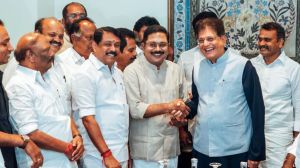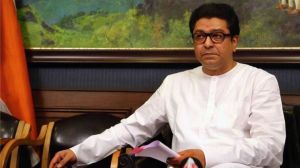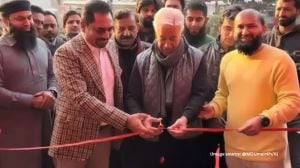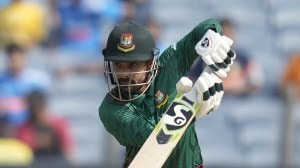Three146;s Company
IN the Valley of uncertainty, violence is gradually altering the psyche of its young parents. After a moderately successful run in Kashmir, ...

IN the Valley of uncertainty, violence is gradually altering the psyche of its young parents. After a moderately successful run in Kashmir, the two-child norm is giving way to a preference for larger families as a form of insurance against a sudden death.
After the early-1990s practice of sending grown-up male children elsewhere for higher studies, this is the emerging militancy-triggered parenting trend in the Valley.
8216;8216;It8217;s extremely unwise to opt for only one male issue,8217;8217; says Tahir Bandey, an engineer with the Roads and Buildings department here. 8216;8216;I have three sons, but if I8217;d had to wait for four issues for just two sons, I would have. But there8217;s a risk associated with just one son. God forbid, if anything happens to him, the family will be ruined.
8216;8216;Everyone in my friends8217; circle thinks along these lines. The violence has taught us to do so.8217;8217;
At another end of the socio-economic spectrum, Mushtaq Ahmad Wani, a tailor from Hazratbal, echoes Bandey8217;s ideas. 8216;8216;My brother Farooq wanted a ligation after fathering a son and a daughter. But my family persuaded him to reconsider. Fortunately, the next issue was also male,8217;8217; he says, adding that he himself has two sons as well.
According to noted psychologist Abdul Gani Madhosh, two factors work behind this reasoning. 8216;8216;One is purely sociological. Parents realise that with more than two kids, there are more chances of one living upto their expectations. Two, they want their line to continue despite the unending uncertainty. Parents seek security through more children,8217;8217; he says.
8216;8216;This is the most valid, logical and scientifically proven feeling across the Valley,8217;8217; seconds Bashir Ahmad Dabla, head of the sociology department at Kashmir University, who has studied the socio-psychological impact of the violence in the Valley.
8216;8216;The feeling is especially dominant among families that have faced deaths. It is developing even in families not directly affected by the violence,8217;8217; he says. 8216;8216;The root reason is insecurity. My studies show that almost every family in Kashmir has suffered one way or the other in the past 16 years. The huge presence of security forces is also a factor that compels parents to think that a single male issue is not safe. They think with two, if one goes, there8217;s the other8230; The parents are very conscious about their future.8217;8217;
Perhaps they have taken a leaf out of the experiences such as Mehmood-ul-Hassan Farouqi8217;s. The Umer Colony resident lost two sons8212;one an engineering student and the other a 15-year-old8212;to violence on July 31, 1992.
8216;8216;My son Taj was here on holiday from studies in Bangalore. There was an encounter between the BSF and militants outside our house. After that, the forces entered my house and killed both my sons,8217;8217; says Farouqi. 8216;8216;This solitude is killing us8230; By now, we should have been playing with our grandchildren.8217;8217;
While the Farouqis were too old to consider having more children, Haji Abdul Rasheed of Nadihal, Bandipore, convinced his wife to undergo a recanalisation surgery after their son was killed by an extortionist in March 2003. But undertaken 15 years after ligation, the surgery did not succeed. 8216;8216;We had opted for two kids. And now we8217;re left with one daughter,8217;8217; says Farouqi.
While the attitude may seem sexist, it is rooted in unavoidable social realities. Dr Shahida Mir, head of the department of gynaecology and obstetrics at the Government Medical College here, believes it to be a largely rural phenomenon, as village parents have always had a weakness for sons. Dabla, however, says it8217;s a urban trend, triggered by the far greater concentration of security forces.
8216;8216;I have noticed a reversal of the two-child norm largely among the educated and the affluent, the upper and upper-middle classes,8217;8217; says Madhosh. 8216;8216;Around 50 per cent of these categories now look for more than two children.8217;8217;
- 01
- 02
- 03
- 04
- 05































